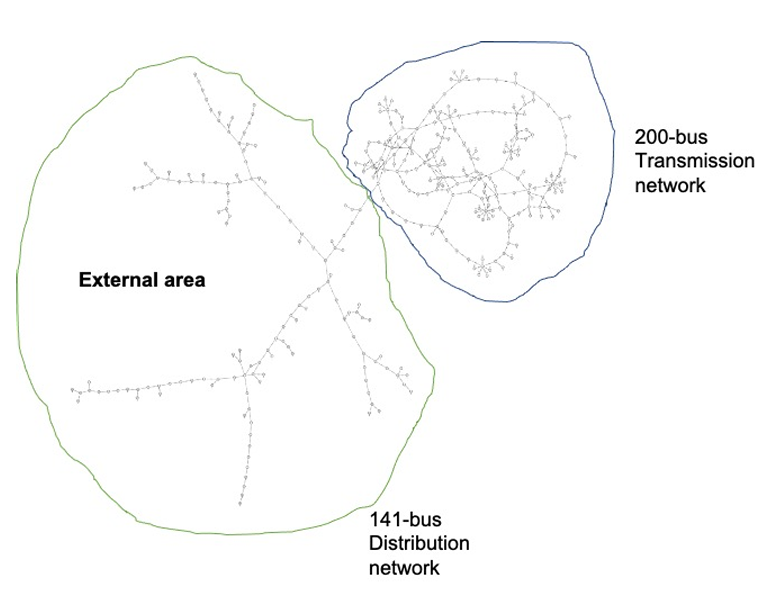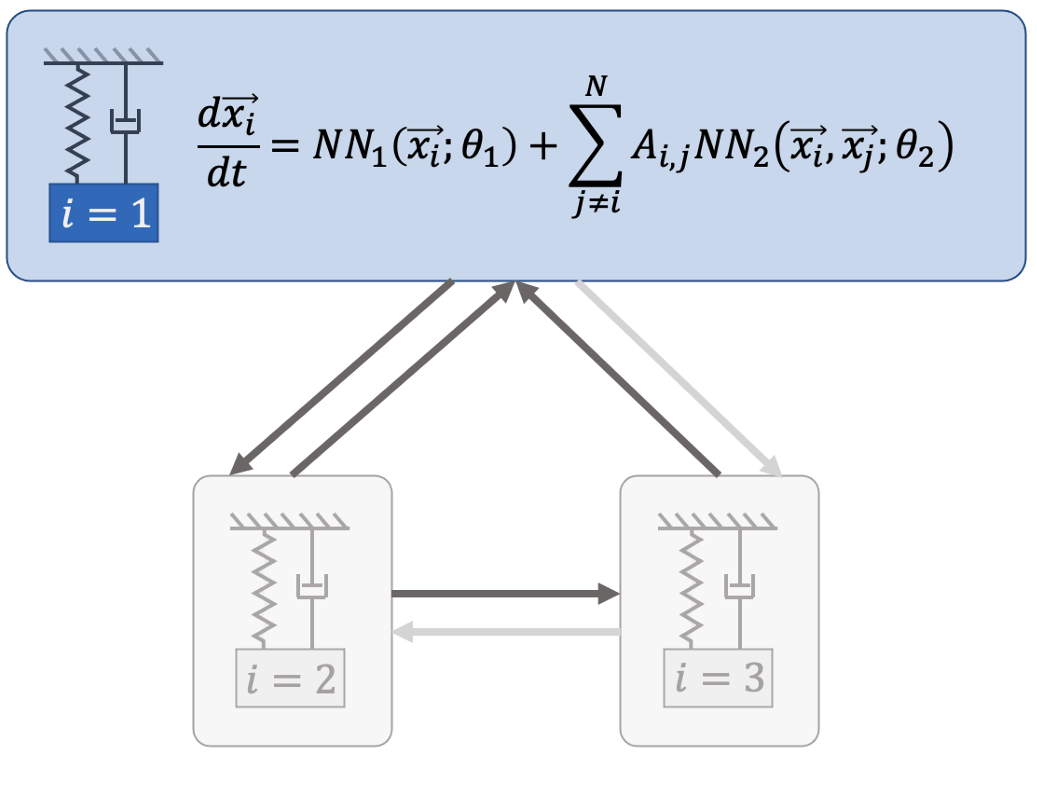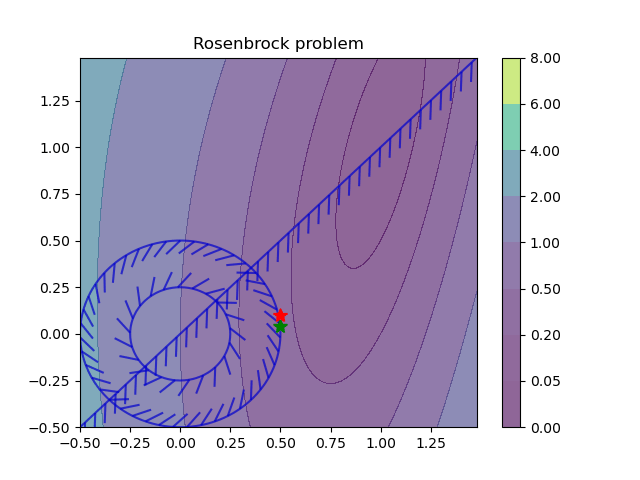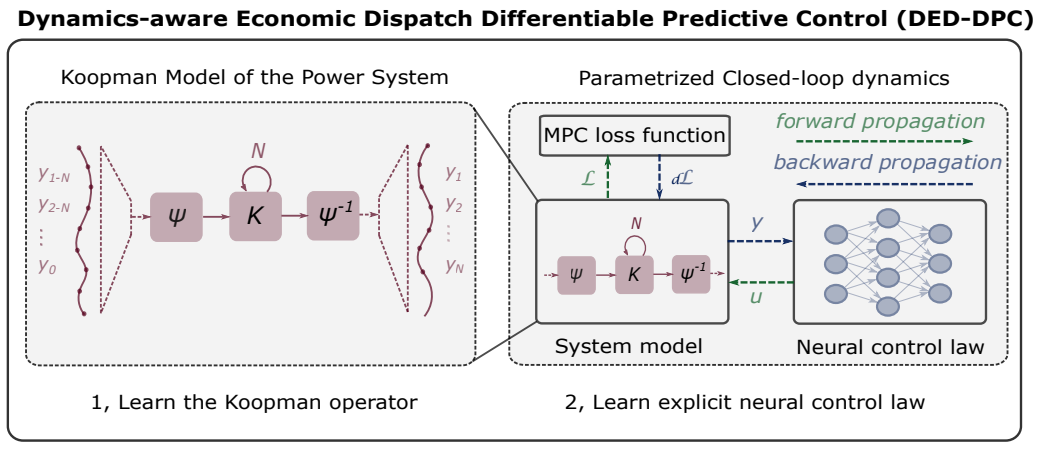SciML for power systems
Developing Scientific Machine Learning (SciML) methods for power system applications.
Abstract
In this project we developed a range of scientific machine learning (SciML) methods for surrogate modeling of electric power system dynamics and decision problems.
Learning to optimize: We have investigated the use of differentiable parametric optimization also called learning to optimize (L2O) approach to tackle several constrained optimization-based decision problems in power systems, namely load modeling of a transmission-distribution network, and optimal power flow (OPF) problem.

Learning to control: The dynamics-aware economic dispatch (DED) is an important problem in power systems that includes generator dynamics and operational constraints to enable near real-time scheduling of generation units in a power network. However, the incorporation of differential equations that govern the system dynamics makes this optimization problem computationally prohibitive to solve. To adress this limitation, we developed a novel method to employ the recently proposed differentiable predictive control (DPC) for offline learning of explicit neural control policies using an identified Koopman operator (KO) model of the power system dynamics. By doing so, we demonstrate the high solution quality and five orders of magnitude computational-time savings of the DPC method over the original online optimization-based DED approach.

Modeling networked dynamical systems: Networked dynamical systems are common in power systems, however, they are notoriously hard to model with purely data-driven approaches. In our work, we seek to infer (i) the intrinsic physics of a base unit of a population, (ii) the underlying graphical structure shared between units, and (iii) the coupling physics of a given networked dynamical system given observations of nodal states. These tasks are formulated around the notion of the Universal Differential Equation, whereby unknown dynamical systems can be approximated with neural networks, mathematical terms known a priori (albeit with unknown parameterizations), or combinations of the two. We demonstrate the value of these inference tasks by investigating not only future state predictions but also the inference of system behavior on varied network topologies.
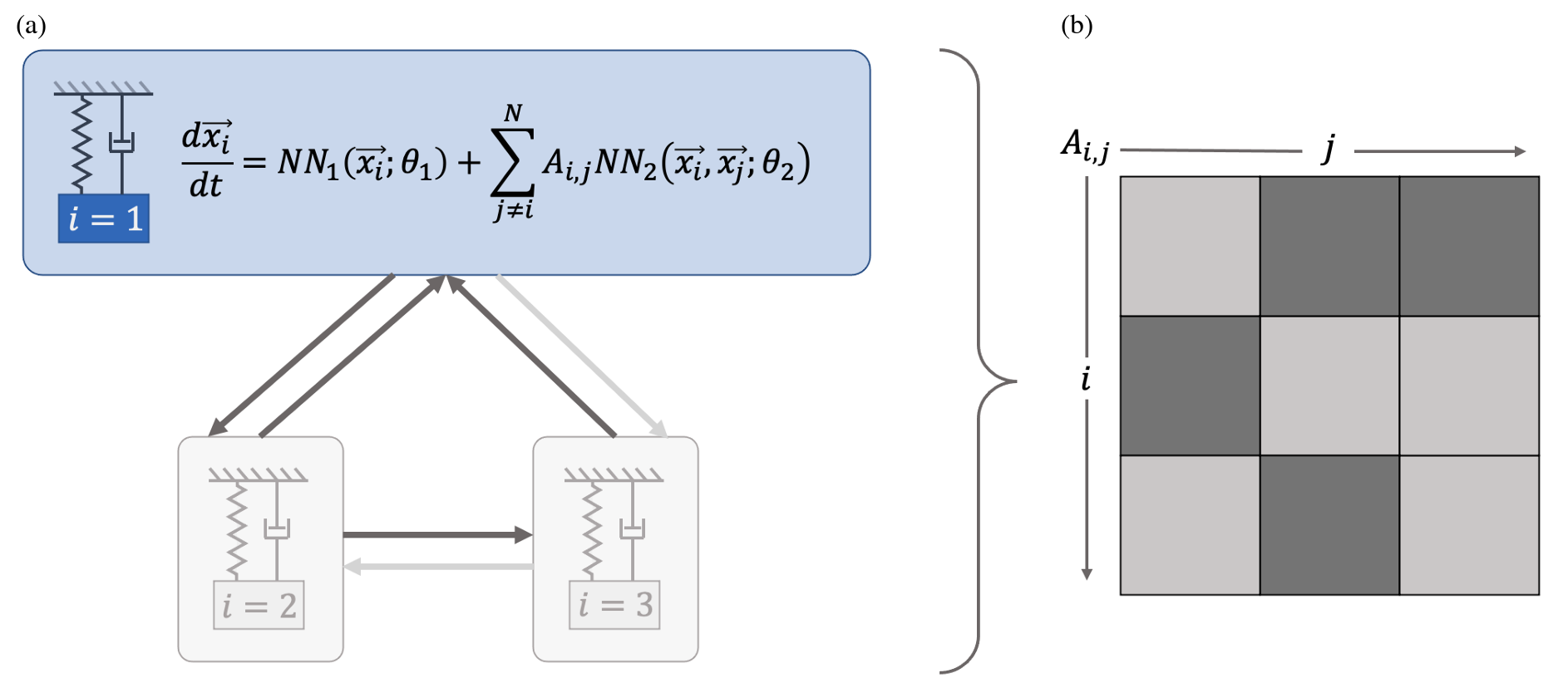
Datasets: Our team lead by researchers form Carnegie Mellon University (CMU) also investigated power grid behavioral patterns in real-world datasets, including the time-varying topology, load, and generation, as well as the spatial differences between individual loads and generations. Based on these observations, we evaluated the generalization risks in some existing ML works caused by ignoring these grid-specific patterns in model design and training.
Open-source Software
The methods developed under this project is being open-sourced as part of the Neuromancer Scientific Machine Learning (SciML) library developed by our team at PNNL.
Acknowledgements
This research was supported by the Data Model Convergence (DMC) initiative via the Laboratory Directed Research and Development (LDRD) investments at Pacific Northwest National Laboratory (PNNL). PNNL is a multi-program national laboratory operated for the U.S. Department of Energy (DOE) by Battelle Memorial Institute under Contract No. DE-AC05-76RL0-1830.
PNNL Team
- Ján Drgoňa (PI)
- Shrirang Abhyankar (Co-PI)
- Aaron Tuor
- James Koch
- Draguna Vrabie
- Ethan King
- Andrew August
- Shimiao Li (CMU - Summer internship)
